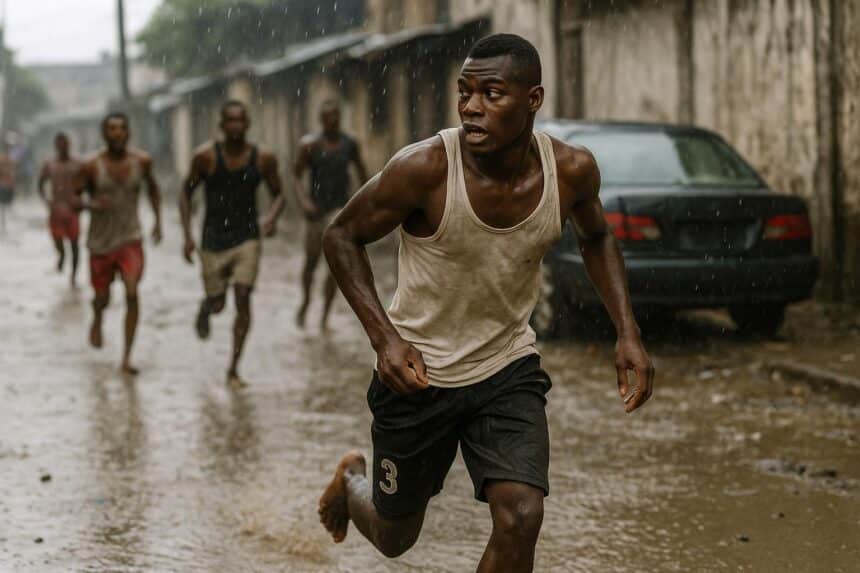Nightly fear returns to Brazzaville streets
For months, Makélékélé, Moungali and parts of Poto-Poto have echoed with the metallic clang of machetes wielded by Kuluna gangs known locally as “bébés noirs”. Residents describe hurried sunsets, shuttered kiosks and moto-taxi drivers refusing certain alleys once darkness falls.
- Nightly fear returns to Brazzaville streets
- Presidential security takes the lead
- Community cooperation becomes crucial
- Kulunas shift to the hinterland
- Safeguards against abuse and profiling
- Economic roots behind the blades
- Government signals multi-tier response
- Everyday relief, cautious optimism
- Looking ahead to safer neighbourhoods
- Final word from the front line
Police statistics shared with local press indicate a sharp rise in robberies and assaults since early July, often committed by adolescents operating in loosely knit crews. While most attacks end in stolen phones or wallets, several knife injuries have kept emergency wards on alert.
Presidential security takes the lead
Last weekend, officers from the Directorate-General of Presidential Security joined the Republican Guard in an unprecedented security sweep. Commanders say the goal is to regain control of neighbourhoods, reassure families and ‘reaffirm state authority’ without resorting to excessive force (Journal de Brazza).
Patrols now combine armoured pick-ups, motorbike squads and plain-clothes agents. Checkpoints sprouted near the Moungali roundabout and the banks of the Tsiémé River, spots previously avoided by standard police units after several ambushes earlier in the year.
Community cooperation becomes crucial
Authorities openly court local participation, urging household heads to text or call a dedicated hotline when they notice unfamiliar faces or weapons. Community radios echo the appeal every hour, and churches have begun handing leaflets after Sunday service listing emergency numbers.
Pierre Mouyabi, president of a tenants’ association in Makélékélé, welcomes the approach: “We know these boys. They are sometimes our nephews. If the state works with us respectfully, we can point out the real ring-leaders.” His comments draw applause during a neighbourhood meeting filmed by Télé Congo.
Kulunas shift to the hinterland
By Monday, security services reported a visible drop in gang presence inside Brazzaville. Several suspected chiefs are believed to have boarded freight trucks toward Nkayi and Dolisie, hoping to regroup in less policed zones, according to a senior officer who requested anonymity.
Rural mayors contacted by our newsroom confirm increased youth arrivals. In Louingui, one councillor notes unfamiliar teenagers renting cheap rooms near the station. He has asked for additional gendarmes but worries about stretching small budgets: “Our jail has eight beds; we cannot host fifty runaways.”
Safeguards against abuse and profiling
Human-rights observers, while supportive of the crackdown, caution against blanket arrests. The Congolese Observatory of Human Rights reminds units that minors must be handled by juvenile magistrates within 48 hours, in line with the 2010 child-protection code.
Colonel Florent Okemba of the Republican Guard says every patrol carries body cameras to document interventions. “We cannot fight delinquency by creating new injustices,” he explains, promising disciplinary measures for any officer caught extorting or mistreating suspects.
Economic roots behind the blades
Sociologists at Marien-Ngouabi University trace the Kuluna phenomenon to unemployment hovering near 20 % among under-25s. Many gang members dropped out of school during the pandemic and turned to informal mining or petty trafficking before discovering the lucrative fear economy of the capital.
“The machete is cheaper than a diploma,” laments lecturer Clarisse Mvouba, urging parallel investment in apprenticeship programmes. She cites the successful 2021 pilot in Sibiti, where 60 former gang members received carpentry kits and microloans, with a reported recidivism rate below 5 %.
Government signals multi-tier response
Interior Minister Raymond Zéphirin Mboulou announced that the current sweep will be followed by vocational workshops, sports tournaments and accelerated identity-card delivery to help youngsters find legal work. Municipal leaders are tasked with mapping abandoned buildings often used as gang hideouts.
Funding details remain scarce, yet officials hint at partnerships with mobile-money operators to create stipends for participants who complete training. The private sector, especially construction firms preparing for the 2025 All-Africa Games, could absorb part of the labour pool, according to the ministry.
Everyday relief, cautious optimism
In Moungali market, seamstress Lucie Ngoubili now feels safe enough to close at 20:00 instead of 17:30. Bread sellers note higher evening sales, a small but telling sign of restored confidence in public spaces.
Still, parents escort children to school at dawn, and moto-taxi drivers keep machetes under seats ‘just in case’. The city’s fragile calm depends on whether the operation maintains momentum beyond media headlines.
Looking ahead to safer neighbourhoods
Security chiefs plan to rotate fresh troops into Brazzaville every two weeks to prevent fatigue and corruption. Weekly progress reports will be shared with local councillors, allowing them to flag unaddressed pockets of violence.
If sustained, observers say the model could be replicated in Pointe-Noire, where smaller Kuluna cells have surfaced near the port zone. The ultimate test, however, lies in converting fear-based respect into genuine public trust.
Final word from the front line
At sunset, as patrol headlights slice through Avenue de la Paix, a teenager watches from a doorway, toy football under his arm. Asked if he fears the soldiers, he shrugs: “If they stop the machetes, maybe I can play outside again.” His hope captures the operation’s true stake.






















